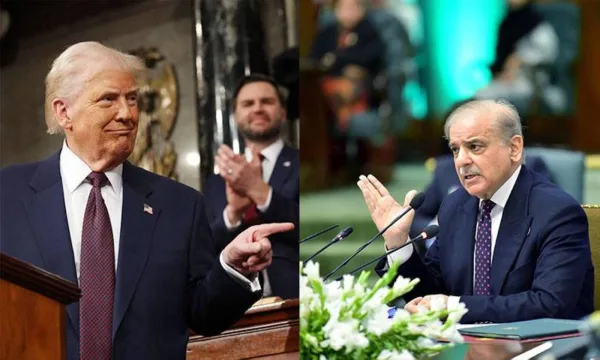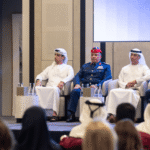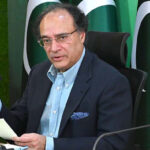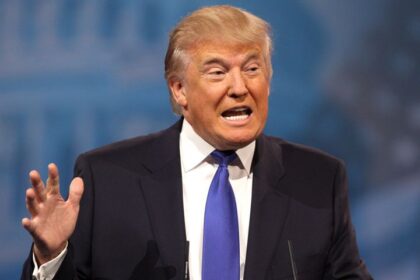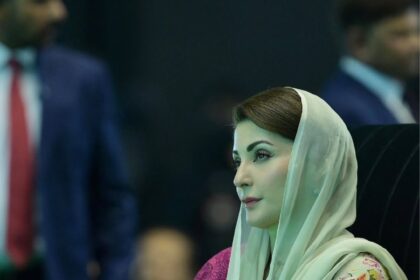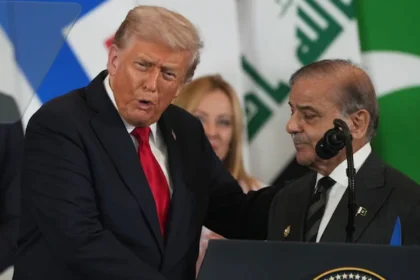In a striking diplomatic moment, Prime Minister Shehbaz Sharif’s emotional praise for U.S. President Donald Trump has drawn attention across global media. Citing Trump’s role in preventing multiple wars and achieving ceasefires, Sharif described him as a “man of peace” — a statement that has sparked both admiration and debate within Pakistan’s political circles.
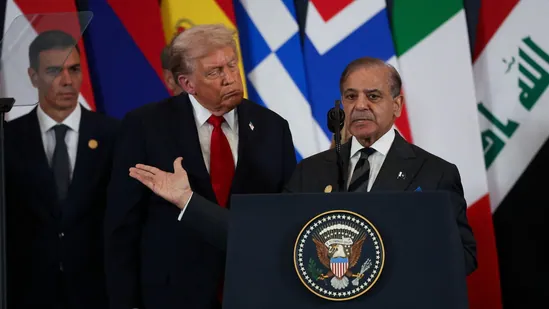
ISLAMABAD (Reuters / Pakistan Bureau Report):
Pakistan’s Prime Minister Shehbaz Sharif’s recent remarks at an international peace summit have placed Islamabad at the heart of a renewed global conversation on diplomacy and conflict resolution. Quoting Reuters, U.S. President Donald Trump revealed during a White House dinner that Sharif became “emotional” while crediting him for saving millions of lives through his peace initiatives and efforts to prevent wars.
Speaking to guests at the White House on Wednesday, President Trump recounted the interaction, saying:
“In fact, the prime minister of Pakistan came and told me, and he was emotional about it. And in front of a group of people, he said, ‘This man saved 3 million, 5 million, maybe an untold number of lives.’”
The U.S. president, who has long sought recognition for his global peace mediation efforts, humorously noted that despite ending “eight wars in eight months,” the Nobel Committee had instead awarded this year’s Peace Prize to Venezuelan opposition leader María Corina Machado.
“Did I get a Nobel Prize? No,” Trump quipped. “I suspect next year will be better, but I don’t know.”
Earlier this week, during a high-profile summit in Sharm El-Sheikh, Prime Minister Sharif hailed President Trump’s “exemplary leadership” as world leaders signed a landmark declaration to enforce a permanent ceasefire in Gaza. Standing beside Trump, Sharif called it “one of the greatest days in contemporary history,” emphasizing the U.S. president’s “untiring efforts” to promote peace and global prosperity.
Sharif’s remarks follow his earlier endorsement of Trump for the Nobel Peace Prize, particularly after the U.S. president reportedly helped de-escalate a four-day military standoff between Pakistan and India in May.
“President Trump is genuinely a man of peace,” Sharif said, “who has relentlessly worked day and night to make this world a place to live in peace and prosperity.”
While Trump’s statements have fueled his ongoing campaign for international recognition, Islamabad’s diplomatic sources suggest Sharif’s words reflect Pakistan’s interest in reinforcing stability through dialogue and cooperation with major powers.
Analysts in Pakistan have viewed the development as a sign of Islamabad’s strategic balancing — recognizing U.S. influence while seeking to advance its own peace narrative in the region.
Meanwhile, the White House criticized the Nobel Committee’s choice, arguing that Trump’s direct interventions in South Asia and the Middle East merited greater acknowledgment.
As both leaders publicly celebrate what they describe as a “new era of peace diplomacy,” observers note that the growing rapport between Washington and Islamabad could mark a significant shift in regional power dynamics — one driven not by conflict, but by cautious collaboration.
Discover more from JUST UNTOLD STORY
Subscribe to get the latest posts sent to your email.




